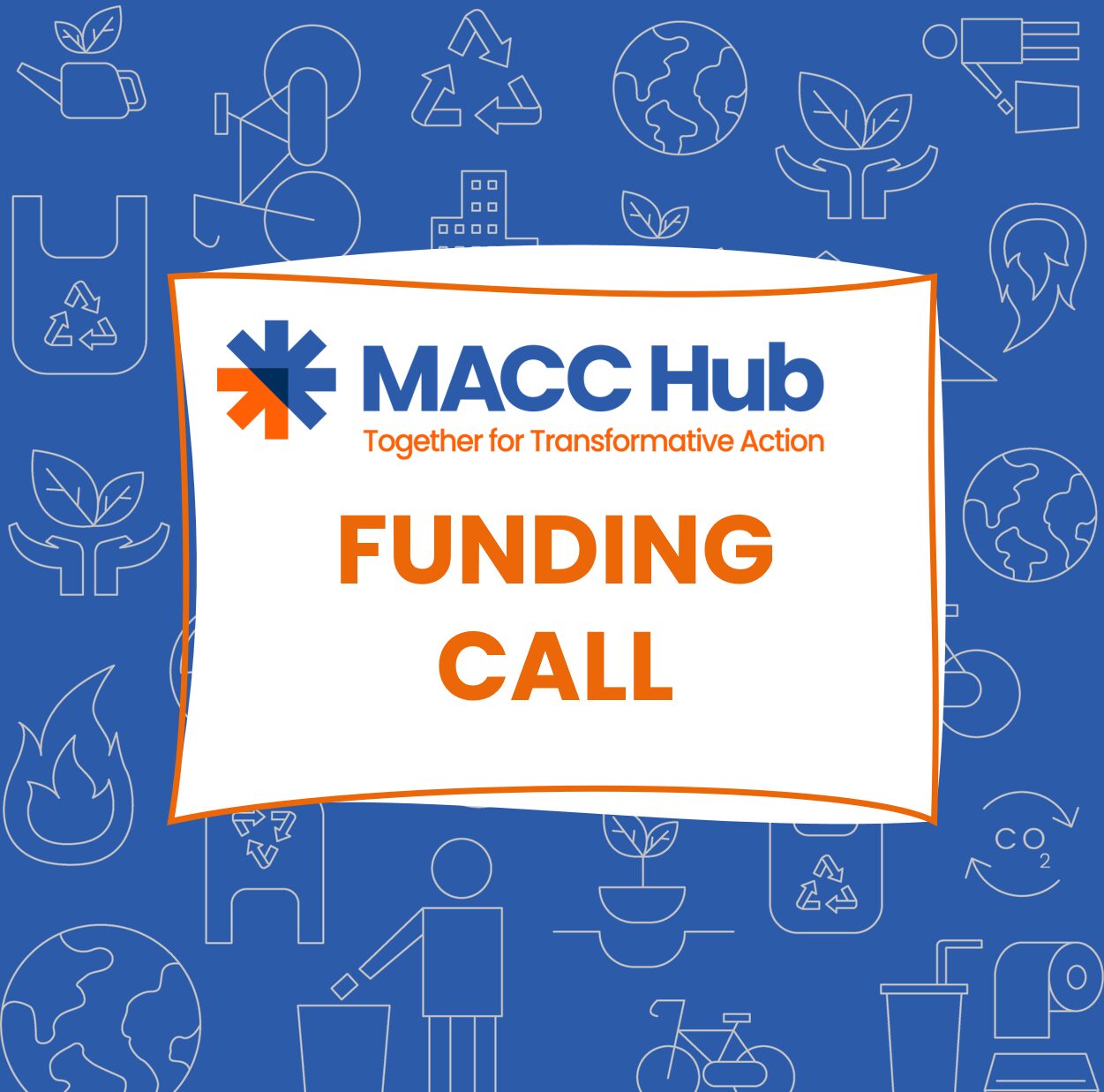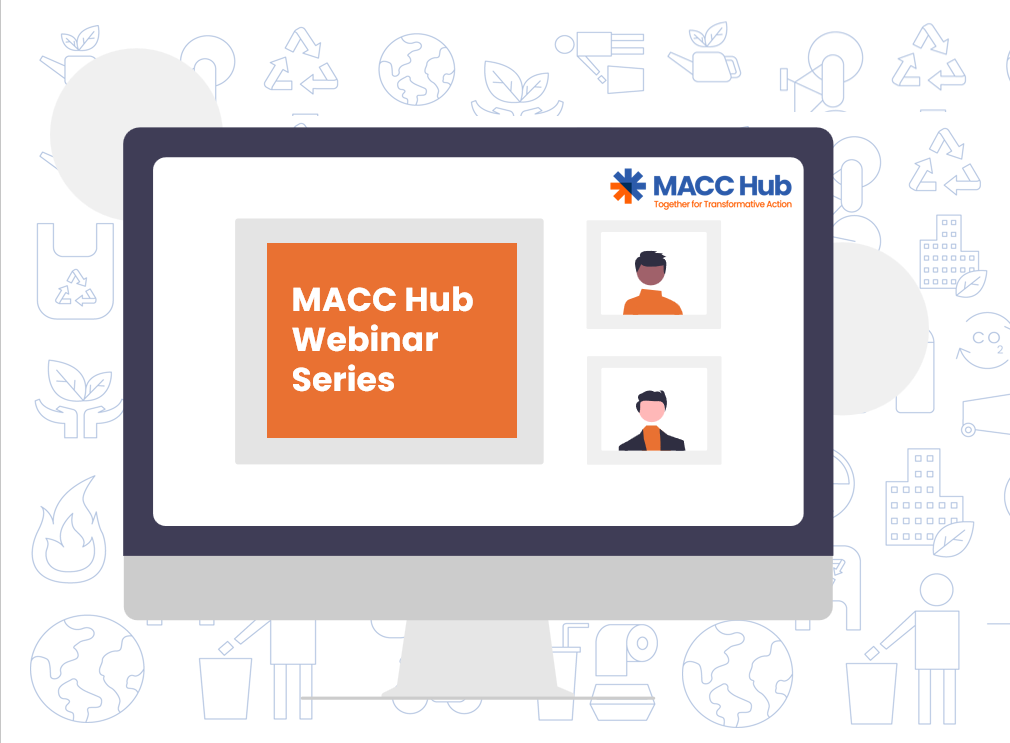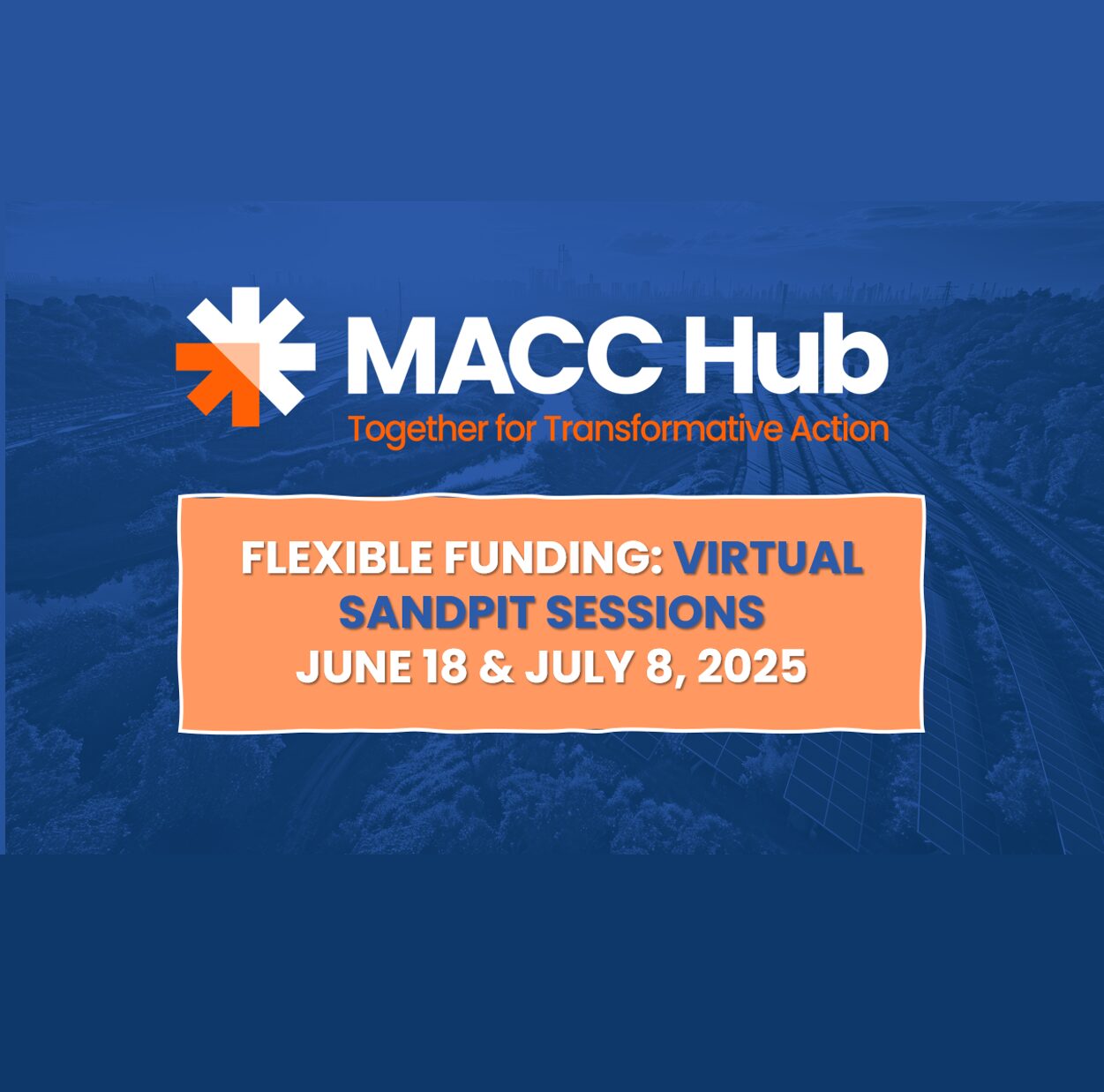Call for proposals on transformational adaptation solutions

Summary
| Opportunity status: | Open |
| Funders: | UK research councils and Department for Environment, Food and Rural Affairs (Defra) |
| Funding type: | Grant |
| Total fund: | £550,000 |
| Maximum award: | £55,000 |
| Call publication date: | 17 June 2025 |
| Mandatory expression of intent (EOI) submission date: | 5:00pm BST, 8 August 2025 |
| Full application closing date: | 5:00pm BST, 30 September 2025 (link) |
(Applications submitted without having previously submitted an EOI will be rejected.)
Version 1, published 17 June 2025
-
The Maximising UK Adaptation to Climate Change (MACC) Hub brings together leading academic researchers and adaptation networks responsible for driving action in their local areas. The Hub aims to inform national climate change adaptation plans by addressing barriers to public awareness, policy, legislation and climate data that might be hindering the UK’s ability to adapt to global warming.
The Hub is also exploring skills development, working in partnerships, knowledge exchange, and developing and sharing data and evidence to advance transformational climate adaptation in the UK.
The MACC Hub defines transformational adaptation as a systemic and integrated approach to addressing climate risks, one that requires challenging societal, economic and political systems. Central to this is the intentional reframing of what we value, ensuring that these values (e.g. social cohesion or relationship with nature) are meaningfully embedded in our systems and processes. It is key that transformational adaptation is not confined to the domain of climate change but extends to broader efforts that drive social change and promote equity and justice across diverse contexts.
The MACC Hub and this funding call are part of the wider UK Research and Innovation (UKRI)- and Defra-funded MACC programme which also comprises six research projects. The programme will deliver cutting-edge research and capacity building across priority sectors, and focus on overcoming behavioural, financial and communication barriers to delivering adaptation solutions for policy and wider society.
-
This MACC funding call aims to catalyse transformational climate adaptation across the UK by supporting innovative, place-based adaptation projects. To maximise project outputs, the fund is intentionally designed to foster collaboration between businesses, policymakers, local authorities, public bodies, health and care organisations, community groups and NGOs. A strong emphasis is placed on inclusivity and the creation of scalable, practical solutions..
-
a. Who is eligible to apply?
This MACC Hub funding call is seeking applications from collaborations between academic and non-academic institutions across the UK.
The project lead must be at a UK institution which is eligible to receive UKRI funding (higher education providers, research institutes, NHS bodies, public sector research establishments, etc please refer the link above). For ease, we will refer to all eligible organisations as HEIs from hereon in.
They must:
- have an employment contract which ends no earlier than the proposed timeframe of the submitted proposal
- not be a MACC Hub collaborator, member of the MACC Programme Advisory Group or the MACC Hub Advisory Group, or associated with any of the MACC programme research projects
- be able to demonstrate the capacity to disburse funds to non-academic partners and other relevant organisations in a timely and accountable manner
Single award responsibility:
- A single award contract will be issued to the academic lead’s institution
- If co-leads are from multiple organisations, it is the project lead’s responsibility (supported by their institution’s administrative authorities, where relevant) to manage the flow of funds and any necessary agreements
The project lead should ensure that the co-leads, particularly those from non-academic institutions, are able to make a significant and equitable contribution to the development of the proposal and be actively involved in delivering the project.
b. Funding available
The full economic cost (FEC) of the project can be up to £55,000. We expect to fund 10 to 12 projects, with a duration of 6-12 months.
It should be noted that, in accordance with UKRI’s funding regulations, funding will be awarded at 80% FEC for HEIs and 100% FEC for non-HEIs.
There is no cap on funds available to non-HEI co-leads. However, non-HEI organisations must account for at least 30% of the total amount requested, inclusive of VAT.
c. Meaningful partnerships
Project applications should evidence meaningful engagement and collaboration with community partners as a core focus, alongside other non-academic stakeholders where appropriate. These may include businesses, policymakers, local authorities, public bodies, health and care organisations, community groups, NGOs and others relevant to the project aims.
d. Representation and equity, diversity and inclusion
Equity is central to this funding call, which encourages applications led by early-career researchers and supports access for underrepresented groups in the climate change adaptation field. Addressing equity issues is a key criteria for assessment, both within the team (e.g. by advancing the careers of those facing challenges related to social mobility, lived experience, caring responsibilities or intersecting identities) and within the collaboration and the nature of the work (e.g. by engaging with the issues that generate vulnerability to climate impacts, and the people and places most exposed to climate change risks). The fund aims to help support local action and local partner organisations by building additional capacity within highly resource-constrained sectors and avoiding purely extractive research practices.
-
a. Aims
The funding call will support action research projects that advance transformational adaptation, supporting research that is action focused and advances transformational adaptation. The aim of the call is to generate information on what works in terms of climate adaptation through “learning by doing” to enable transformational adaptation at various scales, taking place-based approaches and engaging communities and non-academic partners.
b. Scope
Project proposals should:
- be grounded in community engagement
- involve practical implementation or scaling of adaptation actions
- centre on groups and places with greater vulnerability to climate change impacts
- support work to develop integrated, sectoral and just transition pathways
Note: the intention is not for each project to achieve transformation within the 6-12-month timeframe but to initiate or accelerate processes that lay the groundwork for lasting change. Projects that can demonstrate real-world relevance, practical insights and tangible impact through working with communities, and non-academic partners are welcomed. This could include embedding new approaches in community practice, influencing local governance, building lasting partnerships or generating learning that leads to change.
c. Key criteria
The criteria listed below describe the core eligibility and design features expected of all projects, to ensure that proposals meet the fund’s aims:
- Place-based projects: Projects should focus on specific geographical areas and address unique local needs and challenges
- Vulnerability focus: Projects must demonstrate a clear consideration of the groups and places most vulnerable to climate change and specifically identify the vulnerabilities being addressed. Proposals should outline how the project design and delivery aim to reduce these vulnerabilities and build resilience within the identified communities and places.
- Policy links: Projects must demonstrate clear relevance to current or emerging policy needs and priorities at local, regional or national levels. Projects must evidence how they are addressing critical barriers or levers to climate adaptation. This includes establishing clear pathways for engaging relevant stakeholders and amplifying the voices of those most impacted by climate impacts
- Community engagement: Projects should demonstrate meaningful collaboration with local communities, groups and stakeholders, with particular attention to engaging and benefiting the vulnerable groups most at risk from climate change. Proposals should describe how these groups have been involved in the design and delivery of the project
- Measurable outcomes: Projects should prioritise implementation and measurable outcomes by embedding practical adaptation actions that are monitored and reflected upon in real time. They should generate valuable insights into the factors that enable or hinder transformational adaptation in practice. We also encourage innovative approaches, including novel methods for synthesis, dissemination and learning, such as leveraging creative arts-based techniques and technological innovations to advance adaptation research
- Impact and scalability: Proposals should clearly outline how the project will contribute to meaningful, sustainable outcomes beyond the funding period, including reducing vulnerability, improving resilience and driving lasting change. We also encourage projects that demonstrate scalable and replicable solutions with the potential to benefit other regions or address similar challenges across the UK
d. Engagement with the MACC Hub
Successful applicants will be required to contribute to the monitoring and evaluation processes of the MACC Hub by providing short update reports, which will feed into UK Research and Innovation (UKRI) reporting frameworks.
In addition, successful projects will be expected to work with MACC Hub researchers to capture shared learning across the MACC programme on effective pathways to transformational adaptation. The MACC Hub will provide online briefings on ways to get involved, as well as ongoing guidance and support to help capture, synthesise and share learning about how the projects are involving communities in transformational change.
Further, successful applicants will be invited to share progress and initial findings in MACC Hub internal meetings, in external webinar series and at the national annual conference. There will also be opportunities to report progress to the MACC Programme Advisory Group.
-
a. Expression of intent (EOI) to submit
Interested applicants must complete a mandatory expression of intent to submit (click here to download EOI form questions). The EOI is intended to help the MACC Hub gauge interest in the call, encourage applications from across the UK and various sectors, and support the formation of a diverse review panel. The EOI is due by 5:00pm BST on 8 August 2025. Please find the expression of intent form here.
Final applications submitted without having previously submitted an EOI will be rejected. However, nothing provided as part of the EOI is considered final. Therefore, additional partners may be added at a later stage, and the application may change significantly as project ideas are consolidated.
b. Full application
The application to be submitted by 5:00pm BST on 30 September 2025. Submissions can be made in written form or as video or audio uploads. Please refer to the guidance document on how to fill the application form.
Awards will be based solely on the submitted application. There will be no interview stage as part of the assessment process.
Applications will be reviewed by an independent panel. A portfolio approach to assessment will be taken to achieve a balanced mix of projects across geographies and topics.
c. Evaluating applications
Applications will be assessed according to the evaluation criteria above and based on their contribution to the diverse portfolio of projects that collectively address MACC Programme objectives. This will include consideration of the topics and geographies already covered by the MACC research projects. Projects will be chosen based on a range of factors to achieve balance across the portfolio. These factors include:
- topics
- geographies
- place types, e.g. urban, rural, coastal, upland
- scale of project implementation
- sector
- policy area
- equitable inclusion of non-HEI organisations in project design and delivery, and a strong focus on community collaboration in project implementation
We welcome a variety of approaches and sizes of projects that can demonstrate how they meet the criteria above.
Applications will be assessed against the call criteria (refer to section c) Key criteria under heading 5) What are we looking for? Advancing adaptation action’). Specific assessment framework will be published in due course.
Timeline and full application deadline
Action Details Date Call launch Launch call for mandatory EOI June 2025 Virtual sandpit sessions Online FAQ and ‘matchmaking’ sessions 18 June and 8 July 2025 Mandatory EOI To gauge interest in the call and support the establishment of the reviewer panel 5:00pm BST, 8 August 2025 Review panel selection The panel for reviewing the submitted proposals will be established during summer 2025 All reviewers will be contacted by end of August Application submission deadline Final submissions for MACC funding call 5:00pm BST, 30 September 2025 Awards announcement Notifying the selected projects November 2025 d. Personal data
The MACC Hub will need to collect some personal information to manage funding accounts, applications and contracts. All application materials, reviewer comments and monitoring reports will be stored securely by King’s College London as the administering institution. Personal data (e.g. names, contact details, institutional affiliations) will be collected solely for the purposes of application processing, award management and UKRI reporting. Unsuccessful applications will be permanently deleted within 12 months of the call deadline.
We will handle personal data in line with UK data protection legislation and manage it securely. For more information, including how to exercise your rights, read our privacy notice here.
e. Applications questions
A PDF of the submission form questions can be downloaded here.
-
a. Virtual sandpits
Applicants interested in applying for the MACC funding call are invited to attend one of two virtual sandpits following the launch of the call for proposals. These sessions will take place on:
- 1:30pm-3:30pm BST, 18 June. https://www.youtube.com/watch?v=9uH0yUlU9F8
- 10:00am-12:00pm BST, 8 July. Register here
The virtual sandpits will provide information on the call and be an opportunity for networking and relationship building for potential applicants. Prior registration is required to facilitate breakout groups and matchmaking during the online session.
Who should attend?
Researchers, community groups, local authorities, health and care organisations, businesses, and third-sector organisations interested in applying or partnering in a project.Why join a virtual sandpit?
- Learn more about the fund and its priorities
- Share and explore project ideas
- Connect with potential collaborators across sectors
- Start building partnerships ahead of the application process
b. Full guidance document
Refer to the guidance document on our website (refer to ‘Featured Resources’ section on this page) before submitting your application
c. FAQs
Refer to the FAQ document on our website (refer to ‘Featured Resources’ section on this page).



Comments
There is no content